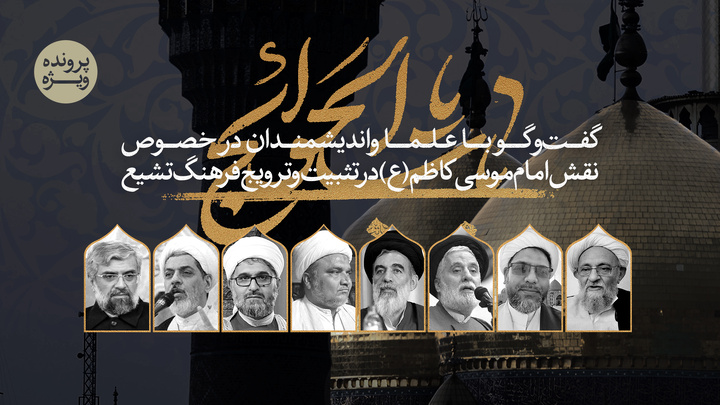After the demise of Imam Sadiq, Imam Musa al-Kadhim became the 7th Imam of Shia Muslims and the flagbearer of the Shia movement.
During the Abbasid rule (750-1258 CE), he endured immense suffering to promote Shia culture, which was extremely challenging under Abbasid oppression. He and his companions sacrificed their lives to uphold the truth of their grandfather Prophet Muhammad’s religion.
Scholars believe Imam Musa al-Kadhim’s long struggle against tyrants clarified the liberating thoughts of Muslims, especially Shia, from oppression, marking his 35-year Imamate as one of the most significant periods in the history of the Imams.
Complex and challenging life of Imam Musa al-Kadhim and countering the deceptive plots of Bani Abbas
According to Ayat. Hosseini Khorasani, the Imam’s struggle against enemies and his perseverance in achieving Islamic and humanitarian goals during difficult political and social conditions of his time are important lessons for all justice-seeking people.
Imam Musa al-Kadhim’s resistance principles against world oppressors
Hoj. Dr. Nasser Rafiee, President of the Al-Mustafa International University, mentioned: “Imam al-Kadhim adopted several methods in dealing with tyrannical rulers, ranging from direct confrontation to expanding the concept of Imamate, interpreting verses in the context of Imamate, and helping the poor”.
Lessons of Imam al-Kadhim for today’s era
Hoj. Seyed Javad Bereshti, an expert in the program “Toward God,” stated that “Imam al-Kadhim’s era has a striking resemblance to today’s time, with the most significant aspect being the soft war. The Imam enlightened and educated people about the Quran, the Prophet’s lifestyle, and Imam Ali’s knowledge”.
Devotion of Indian Shia to descendants of Imam Musa al-Kadhim
According to Sardar Hassan, the descendants of Imam al-Kadhim are numerous in India, especially in Kashmir and northern regions, known as Mousavi and Kadhimi Sayyids. “In Uttar Pradesh and Lucknow, many of Imam al-Kadhim’s descendants reside”.
Narratives from the life of Imam Musa al-Kadhim by a Sunni scholar
Also, Mamousta Abdolsalam Mohammadi, wrote: “Imam Musa al-Kadhim is revered in both Shia and Sunni sources as a symbol of patience and tolerance, embodying unity in the Islamic world”.
Lessons from Imam al-Kadhim for the Shia
Reza Khorakian, the chief director of Imam Reza shrine, noted: “Imam al-Kadhim had an extraordinary life. As depicted in the book by the Leader “250-Year-Old Human,” the Imam lived through some of the toughest times, second only to Imam Sajjad’s era”.
Reflections on the blessed life of Imam Musa al-Kadhim
As highlighted by Dr. Mohammad Abdul Quddus, a Bangladeshi Shia writer, “Imam al-Kadhim, to maintain contact with Shia followers during his many years in prison, expanded the Wakala system (a network of agents to carry Imam’s messages to his followers)”.
Strategies of Imam al-Kadhim in explaining pure Shia teachings
Elsewhere, Ayat. Hassan Alami, a member of the Assembly of Experts, stated that Imam al-Kadhim stood firm against deviant sects with knowledge and patience, safeguarding the essence of Islam. “He addressed contentious issues accurately without inciting sectarian sensitivities”.

In a special 8-part series, AQR interviewed scholars and intellectuals of the Islamic world such as Ayat. Hosseini Khorasani, a member of the Guardian Council, Hoj. Nasser Rafiee, Sardar Hassan, a prominent scholar from the Indian subcontinent, Mamousta Abdolsalam Mohammadi, a Sunni scholar and Friday prayer leader of Dehgolan, Kurdistan, and others to discuss the personality and life of Imam Musa al-Kadhim (the 7th Shia Imam), known as Bab-ul-Hawaij, a title given to him symbolizing a gateway via which people’s needs can be addressed.
News Code 5718

Your Comment